|
Why is my Mom is Making Me Go to Therapy? If you are reading his post, you are probably one of two types of people:
My next few posts are all about helping parents and teens understand each other’s point of view about going to counseling. Today, I answer two very common questions from teens about therapy. “Can my parents make me go to counseling?” The answer is a little tricky. Legally, it varies from state to state. In Colorado, teens who are 15 years and older MUST consent to their own therapy. Parents have to give their permission for teens who are under the age of 15 to be seen by a counselor. The age limit might be different in your state, but written permission for therapy is required everywhere. So, if you are under 15, and live in Colorado, your parents can “make” you go to therapy. They can also strongly encourage older teens to go or make it a requirement in their home. What parents cannot do, is force you to talk or make you be honest with your therapist. This is something you have to decide for yourself, regardless of your age. “Why do my parents think I need to go to therapy?” Sometimes it can help to speak with someone who is objective, meaning they aren't part of your family, your school or your community. Some of the main reasons I see teens for counseling are when they experience:
This is just a short list of the things you can talk about in therapy sessions. Nothing is off limits. If you want to talk about it, go for it! Therapists are great listeners PLUS they'll offer suggestions and work with you to meet your goals. Check back next week for a post about what you can expect when you go to therapy sessions. I'll also be posting soon about what's up with your therapist and why you just might like therapy! Update: Check out the second and third parts of the series! The Guide to Therapy for Teens, Part Two: What to Expect in Counseling The Guide to Therapy for Teens, Part Three: What's the Deal with Your Therapist? Bethany Raab is a Licensed Clinical Social Worker in Denver, Colorado.
She is passionate about helping teens and families be happy and healthy!
As an extra, here is an excellent workbook from the Love is Not Abuse Coalition. It will help you talk about dating violence with your teens. It can also be used in conversations with younger children who are not yet dating.
Bethany Raab is a Licensed Clinical Social Worker in Denver, Colorado.
She is passionate about helping teens and families be happy and healthy!  Photo Credit: Dollar Photo Club Photo Credit: Dollar Photo Club Do you know if your teen is being abused? What should you be looking for?
Sound familiar? Worried about what to do next? Read my post on how you can respond: Your Teen is Being Hurt: What You Can Do to Help Bethany Raab is a Licensed Clinical Social Worker in Denver, Colorado.
She is passionate about helping teens and families be happy and healthy!
Sometimes, being true to yourself means doing the opposite of what others are doing. This can be really hard to do when classmates and friends are pushing your teen to do something. The teen years are full of finding oneself, while also wanting to fit in with peers. What a complicated time! Here are some ways parents (and other adults) can help teens express their individuality! Allow them to make choices. Even though elementary, middle and high school students are not ready to make many big choices on their own, it is good for them to have some opportunity to choose. Clothes, leisure activities and how they spend their money are some great places to start. Teach your teen that all actions have consequences. Some choices have consequences your teen will not foresee. Other times, they will act despite knowing the consequences. Use these times as teaching moments to help your teen improve their decision making skills. Do not embarrass them on purpose. Publicly criticizing your teen’s decisions is unlikely to be helpful in the long run. If your teen has made a choice that is not acceptable, do your best to address this away from the public eye. Not only will this allow for real conversation about the issue, it will also help your teen feel as though you are on their side, even if you do not always agree. Support them. Sometimes teens will make decisions that make little or no sense to the adults in their life. It is not your job to steer your child away from unpleasant experiences, but to be their cheerleader and help them learn. If your child decides to wear all black for months on end, find out why it appeals to him or her rather than forbidding the choice. If your awkward or uncoordinated teen is certain he wants to try out for the basketball team, encourage him to give his best effort and help him prepare. Not only will your teen feel supported in their decisions, they may just surprise you and themselves in the process! That’s enough from me for now. See how you can help your teen express their individual greatness today! And get a good “opposite day” joke in if you can! :) Bethany Raab is a Licensed Clinical Social Worker in Denver, Colorado.
She is passionate about helping teens and families be happy and healthy!  I often hear this statement from teen clients: “video games are my hobby.” I get it. Video games are fun and popular with teens. However, they aren’t exactly a hobby... The point of having a hobby is for a person to be engaged in an activity they love that can also help them learn new skills and to create healthy relationships with peers and authority figures. Livestrong says it best, “Hobbies provide many mental and physical health benefits, including bolstered optimism, increased creativity and a better ability to deal with stress. Sharing hobbies with others also keeps teens socially engaged with people who have similar interests. The type of hobby a teen is interested in is limited only by the imagination of the person.” Don’t have ideas of what to try? Check out this list. Or this one. For parents: Having a hard time getting your teen interested in developing a hobby?
Remember, this can be a process! Encourage your child to try something a few times before deciding they “hate it.” If one activity is not a good fit, try another! Over time, your child will find something they like, or maybe even love! PS: I chose the picture of a teen piano player because this was one of my hobbies as a teen! Bethany Raab is a Licensed Clinical Social Worker in Denver, Colorado.
She is passionate about helping teens and families be happy and healthy! January 11, 2015 is National Human Trafficking Awareness Day in the United States. To be honest, I didn’t think much about the issue of human trafficking until the last couple of years. Sure, I knew it existed. I assumed that it was a problem in foreign countries, not here in the United States. Boy, was I wrong. Human trafficking is a $5-7 billion industry in the U.S. alone. It impacts 21 million victims worldwide, 1.5 million of which are Americans. (UNICEF) Just so we’re all on the same page, here is the formal definition of Human Trafficking from the Trafficking Victims Protection Act of 2000:
Basically, “Human trafficking is a form of modern-day slavery.” (Trafficking Resource Center) Scary, huh?
It is important for parents and community members to be aware of risk factors that make teenagers vulnerable to traffickers. Here are a few signs that your teen could be at risk: Teens living on the streets are prime targets for human traffickers. They tend to have a limited support system and they often hang out in high risk areas such as bus or train stations, parks and shelters. Family discord. Teens from chaotic households often seek support in inappropriate places. Older friends or strangers who give gifts or make extraordinary promises. Does your teen have older friends that you don’t know? Have they received unexpected or extravagant gifts from someone? This deserves your attention. Youth with a history of abuse or neglect may be more vulnerable to traffickers. So what can you do? Talk to your children. Connect with them. Spend time with them. Know who their friends are and where they hang out. Be engaged with your children! Seek Help. If your teen has been a victim of some sort of trauma, consider seeking help for them in the form of counseling or a support group. Their pediatrician is a great place to start in order to get connected with the right services. Reduce Conflict. If your family is riddled with conflict, take steps to work on the problem. Identify causes and implement solutions. Counseling can be helpful with this process. Contact the National Human Trafficking Resource Center. Call 1-888-373-7888 or text INFO or HELP to BeFree (233733). They are available to help victims, families and community members at any time. Let's work together to protect our communities and end human trafficking! Bethany Raab is a Licensed Clinical Social Worker in Denver, Colorado.
She is passionate about helping teens and families be happy and healthy!
My social work journey started when I was a leader for the middle school youth group at my church as a senior in high school. During my college years, I worked in a youth center in Chicago for one summer. Upon returning to school in South Dakota, I worked with teens and families in a residential treatment center and a domestic violence shelter. All of these experiences set the stage for my social work career. When I finished my graduate degree in Denver, I couldn’t wait to get a job working with teens and families! Since then, I have worked with teenagers in residential treatment, day treatment, outpatient counseling and inpatient hospital settings. By now, you have probably guessed that my blog will now focus on teenagers and families. I couldn’t be happier to write about adolescents after spending the last 15 years working with them! I will write about common issues related to teens and families. I will occasionally reference current research or events happening in the world as they relate to teens and families. My hope is that you will find my blog to be helpful and enjoyable to read. I would love to receive input on topics you would like to see on my blog. I appreciate comments and shares if an article resonates with you. Thanks for reading! Happy New Year! Bethany Raab is a Licensed Clinical Social Worker in Denver, Colorado.
She is passionate about helping teens and families be happy and healthy! 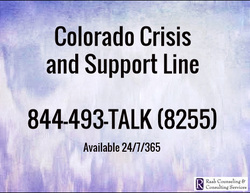 844-493-TALK (8255) 844-493-TALK (8255) On August 12, 2014, the Colorado Crisis and Support Line opened its doors. This new statewide crisis hotline is open to anyone in Colorado who needs emergency mental health assistance or is seeking extra support. All callers can expect to speak to a trained mental health professional. Phones are answered 24 hours a day, 365 days a year. The crisis line phone number is 844-493-TALK (8255) You do not need to live in Denver to use the hotline! It is available to EVERYONE in Colorado! The crisis line advocates can assist callers with a variety of personal and mental health emergencies. Here are a few reasons you might call the hotline:
Please, if you need immediate assistance with a life-or-death situation, call 911 or go to your nearest emergency room. The hotline is run by the Colorado Department of Human Services (CDHS) and Metro Crisis Services. Click here to read the CDHS press release on the opening of the crisis line. Bethany Raab is a Licensed Clinical Social Worker in Denver, Colorado.
This is one of my favorite quotes. I jotted it down almost 10 years ago and it has been hanging on my refrigerator on the same scrap of paper ever since. It is meant to be a reminder for me to express kindness toward others on a daily basis. Here are my musings about the quote and how I think it might apply to you! For Children and Teens What might schools be like if students exhibited these qualities toward their peers and teachers? How much more enjoyable could sports and playtime be for children? This concept is so important for children and teens to learn as they grow and develop. But how do children learn to express kindness? Please read on! For Parents Children learn how to exhibit kindness to others by the example modeled for them at home and in the community. The way you treat the store clerk, other drivers and your family will influence how your children interact with others. Please understand: I am not asking you or your child to be perfect. Everyone loses their temper and says things they do not mean. Use these times as a learning experience for yourself and a teaching moment for your child. Apologizing and exhibiting grace for others’ mistakes are wonderful behaviors to model for your children. For Anyone This concept is not only beneficial for families. I find that my own professional and personal interactions are better and more genuine when I try to be kind to others. My days tend to go smoother even if others do not extend kindness to me. Don’t get me wrong, try as I might, I fail miserably sometimes. The best thing we can all do on those days is to keep trying, and apologize when needed. What is one way you can work to show kindness to others this week? I’ll be working on this with you, especially when I am driving. Let’s do this together! Bethany Raab is a Licensed Clinical Social Worker in Denver, Colorado.
Welcome back to my blog series in honor of May being designated Mental Health Awareness Month. If you haven't already, you can click below to read parts one and two. Please read and share with your network to help spread awareness about mental illness and mental health care! Mental Health Awareness Month: Myths and Facts, Part 1 Mental Health Awareness Month: Myths and Facts, Part 2 Myth #4: Mental health treatment does not work. Fact: Mental health treatment does work and it can help you! Research is being done around the world on various types of therapy. This research is important, especially because it has given us what are called “evidenced base models” of therapy. What this means is that valid, scientific research proves that certain kinds of therapy do work! Several models used by therapists around the United States are evidenced based and widely used. These include but are not limited to: Acceptance and Commitment Therapy (ACT), Cognitive Behavioral Therapy (CBT), Dialectical Behavior Therapy (DBT), and Eye Movement Desensitization and Reprocessing (EMDR). Do not hesitate to ask a potential therapist about what models of therapy they use in their practice and whether or not it is evidenced based. You can click on any of the models listed above to learn more. Click here to view a guide about evidenced based models. Of course, it is possible for you to see a great therapist who does evidenced based work and not see much benefit. The key to therapy being helpful is not only having a skilled and trusted therapist but YOU! I once heard this in a training presented by my colleague Brenda Bomgardner: There are 168 hours in a week. If you spend 1 of those hours in therapy and the other 167 hours ignoring or forgetting what you learned, therapy may not be very effective. Therapy can be hard. Therapy asks a lot of the client, but it is worth it! Myth #5: If I go to therapy, I will have to take medication. Fact: Many mental health problems can be successfully treated with only therapy. Some mental illnesses are best treated with a combination of medication AND therapy. It is important to note that most therapists cannot prescribe medication, as most of us do not have medical training. Therapists who are trained as social workers, counselors, or psychologists are not allowed to give medical advice as it is out of our area of expertise. If you begin therapy, a counselor or therapist might recommend you see a doctor to consider medication. If this happens and you choose to follow the recommendation, you will need to schedule an appointment with a medical doctor. Some general practitioners may be willing to prescribe medications for certain mental health reasons. You may also prefer or need to see a psychiatrist, depending on your individual situation. These professionals are medical doctors who are specifically trained to provide medication and, sometimes, therapy to care for mental illnesses. Your therapist and your doctor will work together with you to determine which path is best for you and your needs. Here is my next challenge to you: Do a quick online search of therapists in your area. See who is out there and take a look at the models of therapy they provide. Choose one to learn more about and take time to read at least one article. It is good to be informed! Check back tomorrow for a bonus post on self-care! Bethany Raab is a Licensed Clinical Social Worker in Denver, Colorado.
|
Welcome!
Every blog post you see on this page is written especially for teens and their parents! Like it? Pin it!
Follow me!
Categories
All
|
||||||||||||||
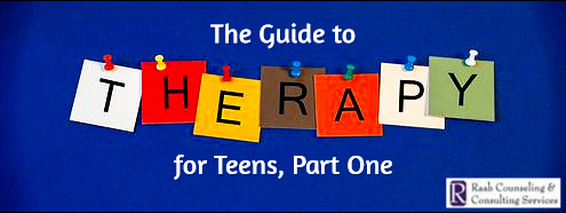
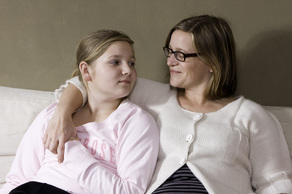
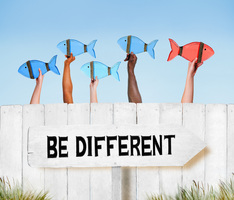
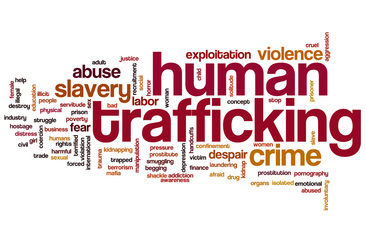

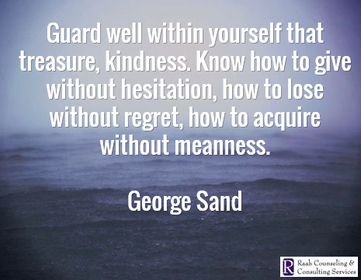

 RSS Feed
RSS Feed